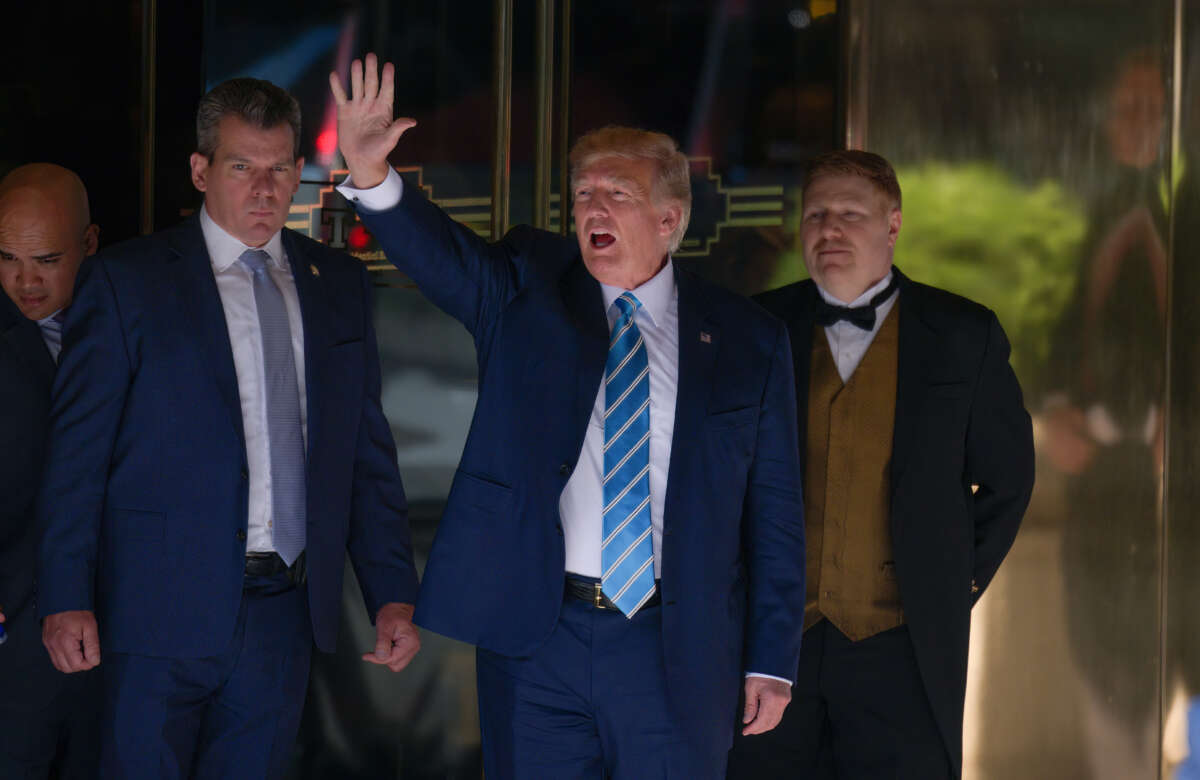The Department of Justice (DOJ) is preparing to ask a federal grand jury to indict former President Donald Trump for his improper transfer of government documents from the White House to his Palm Beach, Florida, estate following his departure from office.
The Independent, citing sources familiar with the matter, has reported that special counsel Jack Smith will pursue an indictment against Trump alleging that he violated aspects of the Espionage Act and engaged in obstruction through his apparent efforts to keep hidden documents he was required to return to the DOJ and the National Archives and Records Administration (NARA) after being subpoenaed to do so last year.
The Espionage Act is frequently used to target and prosecute federal whistleblowers. Many progressives have called for reforms to the law due to its use against figures like Julian Assange and Chelsea Manning, who exposed atrocities committed by the U.S. military and civil liberties violations by the U.S. government.
Although Trump’s motivations for keeping government documents beyond his presidential term are unknown, a recording in which Trump allegedly brags about possessing a set of potential war plans indicates that he kept the documents for personal, egotistical reasons.
A charge of Espionage Act violations would dismantle one of Trump’s key public defenses in seeking to justify why he was in possession of the documents. At many junctures, Trump has claimed that he declassified all classified materials in his possession, even going as far as to claim that his presidential powers allowed him to declassify materials simply by thinking it.
Although such claims by Trump and his allies have been thoroughly debunked, Section 793 of the Espionage Act does not concern itself with the status of documents a person has mishandled. Rather, that portion of the law prohibits “gathering, transmitting or losing…information respecting the national defense,” regardless of whether or not the information is classified.
Put another way, even if Trump was somehow authorized to possess the White House documents in question, he could still be in violation of the law if the DOJ can prove his actions related to the documents compromised national security interests.
Beyond the reporting from The Independent, The Guardian has reported that Trump’s lawyers have been notified through a “target letter” that he is the subject of the DOJ’s inquiry, another indication that indictments against him are just around the corner. On Truth Social, Trump’s social media website, the former president denied being personally informed that he is a target.
“No one has told me I’m being indicted, and I shouldn’t be because I’ve done NOTHING wrong,” Trump claimed.
An indictment could come as soon as Thursday, though it is likely that it will require a few more days for Smith and DOJ prosecutors to make a proper argument for indictment before the grand jury. There are also reports that the grand jury heard additional evidence presented by the special counsel yesterday, which could delay the process of voting on charging Trump.
If Smith recommends charging Trump, Attorney General Merrick Garland will have the power to overturn his recommendation following the grand jury’s decision, but only if he can find fault with how the inquiry was managed.
Ever since the FBI conducted a search warrant on Trump’s Mar-a-Lago property in August, legal experts have believed that Trump could potentially be charged for violating the Espionage Act. In recent weeks, that possibility has moved closer to reality, as the public has gained a deeper understanding of Trump’s actions — including divulging documents to others to apparently brag about them.
“Evidence that he showed highly sensitive documents to third parties implicates the Espionage Act, which forbids willfully conveying such a document ‘to any person not entitled to receive it,’ or willfully failing to deliver the same on demand to a government officer or employee entitled to receive it,” former federal prosecutor Kevin O’Brien told Salon last month. “Trump appears to fall under both prongs of the statute.”
Our most important fundraising appeal of the year
December is the most critical time of year for Truthout, because our nonprofit news is funded almost entirely by individual donations from readers like you. So before you navigate away, we ask that you take just a second to support Truthout with a tax-deductible donation.
This year is a little different. We are up against a far-reaching, wide-scale attack on press freedom coming from the Trump administration. 2025 was a year of frightening censorship, news industry corporate consolidation, and worsening financial conditions for progressive nonprofits across the board.
We can only resist Trump’s agenda by cultivating a strong base of support. The right-wing mediasphere is funded comfortably by billionaire owners and venture capitalist philanthropists. At Truthout, we have you.
We’ve set an ambitious target for our year-end campaign — a goal of $250,000 to keep up our fight against authoritarianism in 2026. Please take a meaningful action in this fight: make a one-time or monthly donation to Truthout before December 31. If you have the means, please dig deep.
